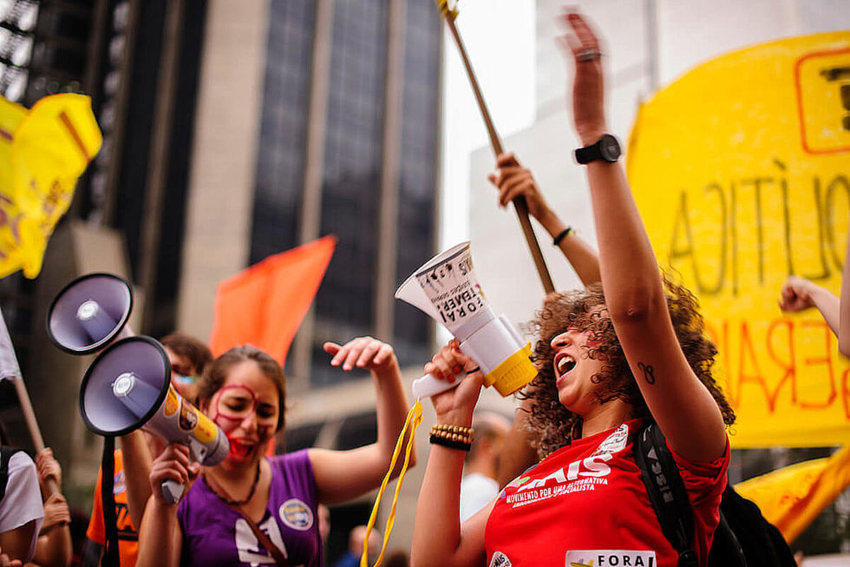
COTTON processing workers in Argentina began a new strike on Monday, 22 February 2021, demanding wage increases, the latest in a string of farming sector standoffs in the country.
Announcing the strike action on Saturday, the Federation of oilseeds workers said workers in cotton processing (ginning) plants have seen their real wages fall amid persistently high inflation and that firms in the sector had made ‘ridiculous salary offers’ that meant a substantial loss in purchasing power.
The union said: ‘Cotton ginning workers are going on strike with unity, solidarity and class consciousness, fighting for their dignity, for their wages and for the future of their families.’
Argentina has been in recession since 2018 and the Covid-19 pandemic has intensified the economic situation for many in the country. Inflation meanwhile reached 4% in January.
The country’s key grains sector has over recent months seen a spate of strikes by workers affecting the transport and processing of soy and other grains, far larger and more important markets for the country than cotton.
Argentina is the world’s largest exporter of processed soy meal and oil and a major supplier of corn and wheat. The union said cotton exports amounted to $120 million in 2020.
- Brazil’s Supreme Federal Court (STF) has brought a criminal action against President Jair Bolsonaro for ordering the use of chloroquine to treat Covid-19.
On Monday STF Judge Rosa Weber sent the edict to the Attorney General’s Office after a lawsuit filed by Partido Democrático Trabalhista (PDT) that considers the propaganda of a drug without proven efficacy as criminal.
After being filed, it is now up to the Attorney General Augusto Aras to decide whether or not to accuse the far-right ex-military officer president of the alleged crime, in addition to other appropriate measures such as opening an investigation.
The PDT indicted Bolsonaro for endangering the health of the Brazilian people by pushing the use of chloroquine, without proven validity against Covid-19, as an early treatment to contain the serious symptoms of the disease that has to date claimed over 246,000 deaths and 10,000,000 infections in the South American country.
The PDT document also cited the alleged crimes related to federal coffers and tenders, due to public purchases made by the government to produce chloroquine and hydroxychloroquine tablets.
Doctors specialising in infections said on January 19 that they have had death threats from Bolsonaro’s supporters unless they use chloroquine or ivermectin treatments for Covid-19 patients.
‘We are suffering constant death threats from people with negative behaviours (known as Bolsonaristas) not only me, but all directors of the Brazilian Society of Infectious Diseases, who do not support chloroquine, ivermectin and early treatment’, Dr Sérgio Cimerman stressed.
The lawsuit came after Brazil’s Workers Federation (CUT) and the fronts Brazil Popular and Povo Sem Medo (People Without Fear) last Saturday launched new popular demonstration demanding the removal of President Bolsonaro.
The protests carried on right through the weekend.
At least 70 cities held rallies, bicycle marches and public events to put pressure for the opening of an impeachment process against the president.
The national mobilisation also includes the demand called ‘Vaccination Now and Free for the Entire Population’ the strengthening of the Unified Health System, the protection of jobs and the extension of the monthly emergency aid of 600 reais (US$ 110) until the end of the Covid-19 pandemic.
The far-right president has dismissed the scope of the pandemic since its beginning – as the death toll rises to over 244 000 people since March 2020
For the CUT and social movements, these demands are a concern of Brazilians in the struggle for democracy and the cry ‘Out Bolsonaro!’ in the face of the new composition of the Chamber of Deputies and the Senate which are more aligned with the government.
So far, at least 70 impeachment requests against the ex-military officer have been submitted to the legislative body citing Bolsonaro’s erratic management of the Covid-19 pandemic; police brutality and racism; the destruction of the Amazon rainforest; and the spike of poverty. It is estimated that 40 million Brazilians live in extreme poverty.
The Rede Brasil Atual news website assures that with the election of Arthur Lira as Parliament Speaker, a supporter of Bolsonaro, making a complaint will become more difficult.
According to the website, CUT national coordinator Raimundo Bonfim warned that the new legislative leader will be an obstacle, but ‘without mobilisation and organisation of events it is really impossible to even put under analysis the impeachment requests.’
Meanwhile, Venezuela has moved towards a decisive stage in the fight against Covid-19 with the launch last week of the first phase of immunisation of prioritised personnel with the Russian vaccine Sputnik V.
A few days before the arrival in the country of the first 100,000 doses of the antidote developed by the Moscow-based Gamaleya research centre, Venezuelan health authorities activated the vaccination campaign, which mainly includes health professionals.
Health Minister Carlos Alvarado announced that the rest of the Sputnik V doses supplied by Russia, a total of 10 million, will arrive in the country progressively.
According to the Minister, the Venezuelan government aims to vaccinate at least 70 per cent of the population this year, in order to achieve the so-called herd immunity.
The massive application of the Russian vaccine is scheduled to begin in April, while the Executive is advancing in negotiations with the Pan American Health Organisation for the purchase of 15 million vaccines in the international market, said President Nicolas Maduro last Saturday.
In a press conference with the international media, the Head of State mentioned the efforts to achieve the release of 300 million dollars, part of Venezuela’s gold reserves blocked by the Bank of England, to be used for the purchase of these supplies.
Maduro highlighted that the combination of the global access fund for anti-Covid-19 vaccines (Covax), of the World Health Organisation, with antigens developed by nations such as Russia, China and Cuba, will advance the protection of the Venezuelan population.